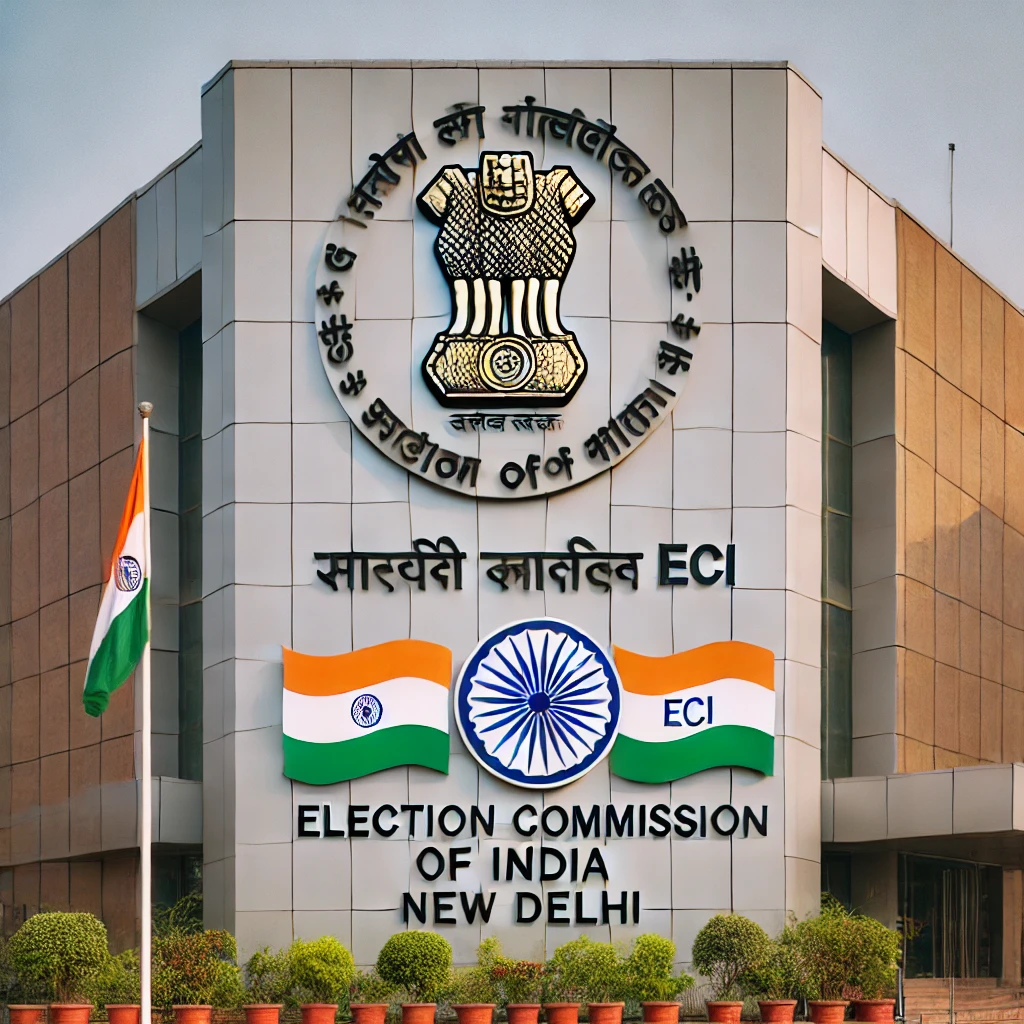The Election Commission of India (ECI) is an autonomous, constitutionally established authority responsible for overseeing the election process in India. Created under Article 324 of the Indian Constitution, the ECI ensures the conduct of free, fair, and impartial elections at the national, state, and local levels. Established on January 25, 1950, the Commission plays a vital role in safeguarding India’s democratic framework by administering elections for the Lok Sabha, Rajya Sabha, State Legislative Assemblies, and the offices of the President and Vice President. With powers to enforce electoral laws, oversee campaign conduct, and ensure transparency, the ECI is pivotal in maintaining the democratic integrity of the nation. Its role has expanded over the years to include voter education, introduction of technology like Electronic Voting Machines (EVMs), and strengthening ethical standards during elections.

CONSTITUTIONAL PROVISIONS
The Election Commission of India (ECI) derives its authority from the Indian Constitution, specifically under Part XV, which deals with elections. Here are the key constitutional provisions related to the Election Commission:
- Article 324: This article vests the superintendence, direction, and control of elections in an Election Commission. It empowers the ECI to conduct elections to the Parliament, State Legislatures, and the offices of President and Vice President of India. It ensures that elections are held in a free and fair manner.
- Article 325: This article prohibits discrimination on the grounds of religion, race, caste, sex, or any of them concerning electoral rolls, ensuring that no person is disqualified from inclusion in electoral rolls based on these criteria.
- Article 326: It deals with adult suffrage, establishing that elections to the House of the People (Lok Sabha) and State Legislative Assemblies shall be conducted based on adult suffrage, which means every citizen above 18 years has the right to vote.
- Article 327: It gives Parliament the power to make provisions concerning elections, including the preparation of electoral rolls, the delimitation of constituencies, and all other aspects of the electoral process.
- Article 328: Similar to Article 327, it grants the State Legislatures the power to legislate concerning elections to their respective state legislatures, subject to the provisions of the Constitution.
- Article 329: This article bars interference by courts in electoral matters, ensuring that election-related disputes can only be challenged through election petitions and specific courts designated for this purpose
In conclusion, the Election Commission of India plays a critical role in preserving the democratic values of the nation by ensuring free, fair, and transparent elections. Empowered by constitutional provisions, the ECI serves as a guardian of electoral integrity, enabling citizens to exercise their right to vote without fear or undue influence. Over the decades, it has evolved into a robust institution that not only conducts elections but also promotes voter awareness, implements electoral reforms, and upholds ethical practices. As the foundation of India’s democracy, the ECI remains pivotal in safeguarding the democratic process, ensuring that the will of the people is effectively represented in government.


